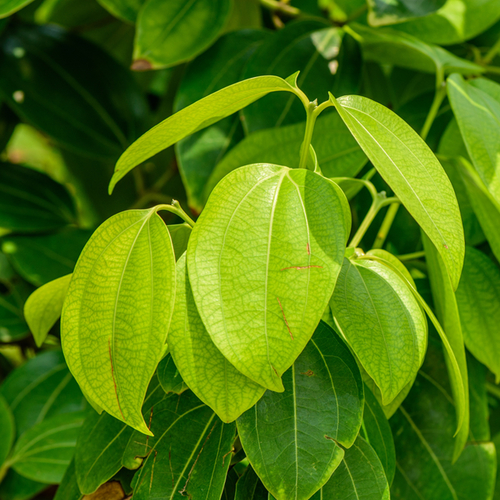
Background
Indian cassia is used for diabetes, cough, common cold, rheumatoid arthritis (RA), and many other conditions, but there is no good scientific evidence to support these uses.
In foods, Indian cassia is used as a spice or flavoring agent.
Safety Safety definitions
When applied to the skin: There isn't enough reliable information available to know if Indian cassia is safe or what the side effects might be.
Special Precautions & Warnings:
Pregnancy and breast-feeding: There isn't enough reliable information to know if Indian cassia is safe to use when pregnant or breast-feeding. Stay on the safe side and avoid use.Diabetes: Indian cassia might lower blood sugar. Watch for signs of low blood sugar and monitor your blood sugar carefully if you have diabetes and use Indian cassia.
Surgery: Indian cassia might lower blood sugar levels. There is some concern that it might interfere with blood sugar control during and after surgery. Stop using Indian cassia at least 2 weeks before a scheduled surgery.
Effectiveness
- Diabetes. Taking Indian cassia three times per day for 3 months might lower blood sugar in people with diabetes.
- Asthma.
- Bad breath.
- Excessive crying in infants (colic).
- Common cold.
- Complications after childbirth.
- Cough.
- Diarrhea.
- Gonorrhea.
- Menstrual cramps (dysmenorrhea).
- Heart disease.
- Indigestion (dyspepsia).
- Liver disease.
- Nausea and vomiting.
- Rheumatoid arthritis (RA).
- Sexual problems that prevent satisfaction during sexual activity.
- Skin damage caused by the sun.
- Sore throat.
- Tuberculosis.
- Other uses.
Dosing & administration
Interactions with pharmaceuticals
Medication for diabetes (Antidiabetes drugs)
Interaction Rating=Moderate Be cautious with this combination.
Indian cassia might lower blood sugar. Diabetes medications are used to lower blood sugar. Taking Indian cassia along with diabetes medications might cause blood sugar to go too low. Monitor your blood sugar closely. The dose of your diabetes medication might need to be changed.
Some medications used for diabetes include glimepiride (Amaryl), glyburide (DiaBeta, Glynase PresTab, Micronase), insulin, pioglitazone (Actos), rosiglitazone (Avandia), chlorpropamide (Diabinese), glipizide (Glucotrol), tolbutamide (Orinase), and others.
Water pills (Diuretic drugs)
Interaction Rating=Moderate Be cautious with this combination.
Indian cassia might decrease potassium in the body. Water pills can also decrease potassium in the body. Taking Indian cassia along with water pills might decrease potassium in the body too much.
Some water pills that can decrease potassium include chlorothiazide (Diuril), chlorthalidone (Thalitone), furosemide (Lasix), hydrochlorothiazide (HCTZ, Hydrodiuril, Microzide), and others.
Interactions with herbs & supplements
Horsetail: Indian cassia might decrease potassium in the body. Horsetail might also decrease potassium in the body. Taking Indian cassia along with horsetail might decrease potassium in the body too much.
Licorice: Indian cassia might decrease potassium in the body. Licorice can also decrease potassium in the body. Taking Indian cassia along with licorice might decrease potassium in the body too much.




